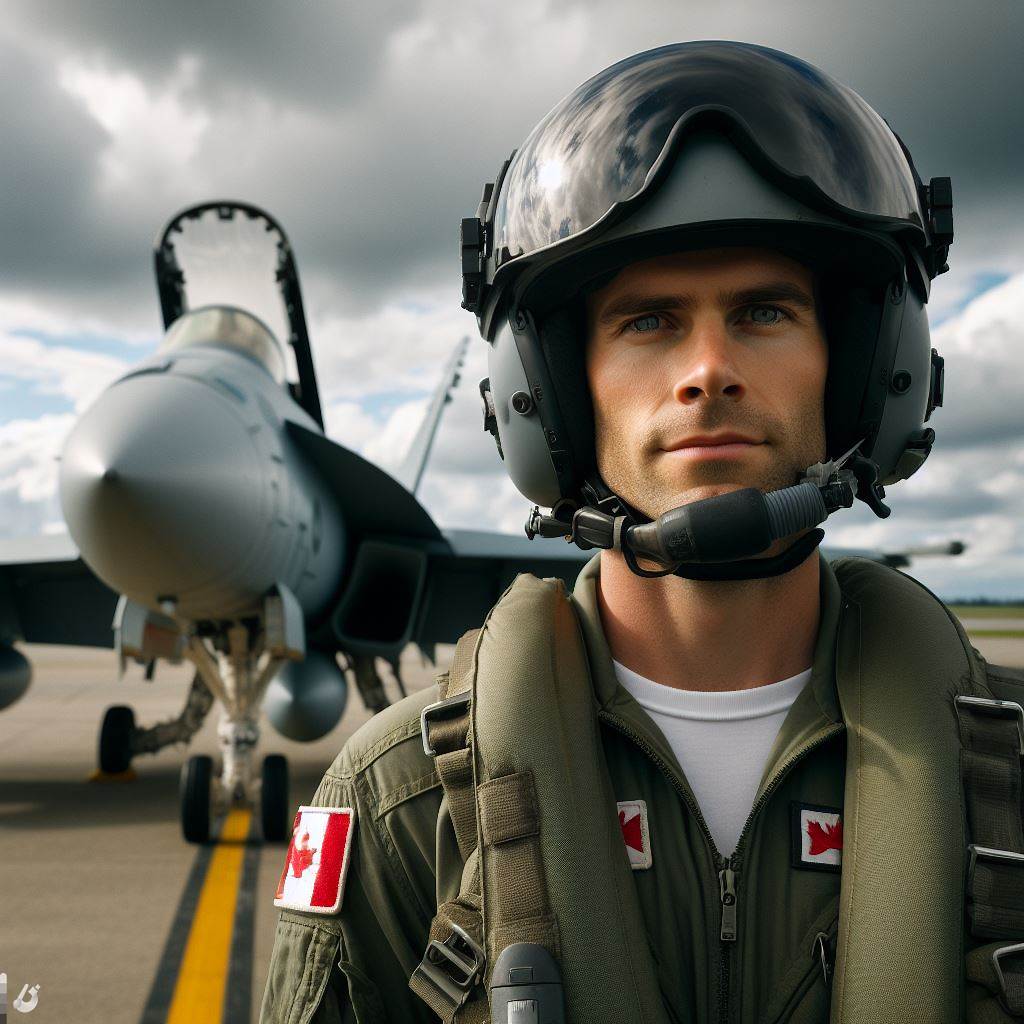Introduction
Canadian Pilot Health Requirements play a crucial role in maintaining aviation safety.
Pilots must meet specific health criteria to ensure the safety of passengers and crew.
It is imperative to ensure that pilots maintain optimal health conditions as they are responsible for the lives of many onboard.
Aviation safety heavily relies on the physical and mental well-being of pilots.
Therefore, strict health assessments are necessary to assess their fitness for duty.
The Canadian Aviation Regulations (CARs) outline the health requirements that pilots must meet to maintain their licenses.
These requirements include regular medical examinations, which evaluate pilots’ physical and mental health, vision, hearing, and overall fitness.
Pilot health conditions that might pose risks, such as cardiovascular diseases or neurological disorders, must be identified and addressed promptly.
Medical assessments also take into account any medication pilots may be taking, ensuring it does not impair their ability to perform their duties safely.
By establishing and enforcing stringent health criteria, Canada’s aviation industry can minimize the potential risks associated with pilot health issues.
Additionally, pilots with certain health conditions may be required to adhere to specific guidelines or undergo further testing to ensure their fitness to fly.
In fact, Canadian Pilot Health Requirements are of utmost importance to maintain aviation safety.
Ensuring pilots meet strict health criteria is essential for the well-being of all individuals involved in air travel.
Overview of Canadian Pilot Health Requirements
In Canada, pilots are subject to strict health requirements set by Transport Canada.
These requirements are in place to ensure the safety of both the pilots and the passengers they transport.
General Requirements
Transport Canada establishes general requirements that Canadian pilots must meet to maintain their physical and mental fitness.
These include:
- Having a valid Class 1 or Class 3 medical certification.
- Demonstrating a clear understanding of the English language, as it is the international language of aviation.
- Not having any medical conditions that could impede their ability to safely operate an aircraft.
Health Assessment
In assessing the health of Canadian pilots, key areas of focus include physical fitness and mental well-being.
- Physical Fitness: Pilots must meet certain physical requirements to ensure they can handle the demands of flying and respond appropriately in emergency situations. This includes having good vision (with or without correction) and hearing.
- Mental Fitness: Pilots must undergo a psychological assessment to evaluate their mental well-being and ensure they can cope with the stress and responsibilities of the job.
Role of Medical Exams and Assessments
Medical exams and assessments play a crucial role in ensuring the health and fitness of Canadian pilots.
- Medical Exams: Pilots are required to undergo periodic medical examinations conducted by certified aviation medical examiners. These exams assess various aspects of their health, including cardiovascular fitness, respiratory health, and neurological function.
- Assessments: In addition to medical examinations, pilots may also be subject to psychological assessments to evaluate their mental fitness and overall well-being. These assessments help identify any underlying mental health conditions or stressors that may affect their performance.
The results of these medical exams and assessments are reviewed by Transport Canada, and depending on the findings, pilots may be granted or have their medical certification suspended or revoked.
In short, Canadian pilots are required to meet specific health requirements to ensure their ability to safely operate aircraft.
The general requirements set by Transport Canada, along with the focus on physical and mental fitness, play a crucial role in maintaining the well-being of pilots and the safety of air travel in Canada.
Read: Balancing Life as a Canadian Pilot
Physical Health Requirements for Canadian Pilots
The specific physical health criteria that pilots must meet
- Pilots must be in good general health to ensure the safety of themselves and their passengers.
- They must undergo medical examinations to assess their physical fitness for flying.
- The criteria include assessing cardiovascular health, respiratory function, and absence of any significant medical conditions.
- Physical fitness tests gauge strength, flexibility, coordination, and overall fitness levels.
- Pilots should have the physical ability to handle the demands of operating an aircraft.
The importance of good vision and hearing for pilots
- Good vision is crucial for pilots to observe and respond to various visual cues while flying.
- They must have a minimum visual acuity to ensure they can see distant objects clearly.
- Color vision is also important to differentiate between different light signals and aircraft markings.
- Hearing is essential for pilots to communicate effectively with air traffic control and crew members.
- They must have sufficient hearing acuity to detect and understand radio communications.
Specific medical conditions that may result in disqualification or restrictions for pilots
- Pilots with significant cardiovascular diseases or conditions such as coronary artery disease may face disqualification.
- Issues like epilepsy, uncontrolled diabetes, and certain psychiatric disorders can also lead to disqualification.
- Impairments that affect the ability to operate controls or perform emergency duties may result in restrictions.
- Pilots with uncorrectedvision below the required standards or significant hearing loss may face restrictions.
- Medical conditions that limit concentration, alertness, or cause frequent changes in consciousness can disqualify pilots.
In essence, physical health requirements for Canadian pilots are essential to ensure the safety of aviation operations.
The specific physical health criteria pilots must meet include assessments of cardiovascular health, respiratory function, and absence of significant medical conditions.
Unlock Your Career Potential
Visualize a clear path to success with our tailored Career Consulting service. Personalized insights in just 1-3 days.
Get StartedPilots must also demonstrate good vision to observe visual cues and differentiate between different light signals and aircraft markings.
Additionally, pilots must have sufficient hearing acuity to effectively communicate with air traffic control and crew members.
Certain medical conditions such as cardiovascular diseases, epilepsy, and uncontrolled diabetes may result in disqualification or restrictions for pilots.
Impairments that affect control operation, concentration, or alertness can also have similar consequences.
It is crucial for pilots to prioritize their physical health and regularly undergo medical examinations to ensure they meet these requirements and can safely carry out their duties in the skies.
Read: Women in Canadian Aviation
Mental Health Requirements for Canadian Pilots
The growing recognition of mental health issues among pilots
The aviation industry has realized the importance of acknowledging mental health concerns among pilots.
Over the years, there has been a growing recognition of the impact mental health has on a pilot’s performance.
Previously, mental health issues were often ignored or stigmatized, leading to potentially dangerous situations in the cockpit.
Awareness campaigns and recent incidents have highlighted the need for effective mental health guidelines.
The importance of mental wellness for Pilots’ performance and decision-making capabilities
Mental wellness is crucial for a pilot’s ability to make sound judgments and quick decisions in high-pressure situations.
The demanding nature of piloting requires pilots to be mentally alert and focused at all times.
Even minor mental health issues can impair cognitive functioning and compromise a pilot’s performance.
Research shows that mental well-being enhances situational awareness, reaction times, and overall safety in the aviation industry.
The mental health assessment process and any specific requirements
To ensure pilots meet mental health requirements, Transport Canada has implemented a thorough assessment process.
During the initial medical examination, pilots must disclose any pre-existing mental health conditions and provide relevant medical documentation.
Aviation medical examiners assess the severity and stability of mental health conditions to determine fitness for duty.
Pilots may be required to undergo additional psychological evaluations or counseling, depending on their conditions.
Specific requirements may vary depending on the severity, treatment, and history of mental health issues.
Pilots with controlled mental health conditions, such as depression or anxiety, may be eligible to continue flying with regular monitoring.
In cases where a pilot’s mental health poses a risk to flight safety, they may be grounded until they receive appropriate treatment.
Regular mental health check-ups and follow-ups are conducted to ensure ongoing fitness for duty.
Transport Canada also encourages reporting of mental health concerns by fellow pilots, colleagues, or family members.
A proactive approach to mental health supports early detection and intervention, ensuring the safety of pilots and passengers.
In general, the aviation industry’s recognition of mental health issues among pilots has evolved significantly.
Understanding the importance of mental wellness in pilots’ performance and decision-making capabilities is essential.
Transport Canada’s stringent mental health assessment process ensures that pilots meet the necessary requirements for safe flying.
By promoting mental well-being and offering support, the industry prioritizes the safety of pilots and passengers alike.
Read: Canadian Pilot Licenses Explained

Medical Examinations and Assessment Process
The process of obtaining medical certificates for Canadian pilots
To become a Canadian pilot, individuals must undergo a thorough medical examination.
The process of obtaining a medical certificate involves several steps and assessments.
Before the examination, pilots are required to fill out a comprehensive medical history questionnaire.
The role of designated aviation medical examiners
Designated aviation medical examiners (DAMEs) play a crucial role in assessing the pilot’s health.
DAMEs are licensed medical practitioners with additional training in aviation medicine.
They have the knowledge and expertise to evaluate the health of pilots accurately.
During the examination, pilots undergo a series of physical and mental assessments.
The assessments aim to determine if the pilot meets the required health standards.
Pilots must demonstrate good visual acuity and color perception for optimal safety.
They are also assessed for their cardiovascular, respiratory, neurological, and musculoskeletal health.
Medical examinations for Canadian pilots are conducted on a periodic basis.
The frequency of medical examinations and any additional assessments required
The frequency of these examinations depends on the pilot’s age and the type of license held.
Pilots under the age of 40 must have a medical examination every five years.
For pilots aged 40 and above, the frequency decreases to once every two years.
Commercial pilots, holding an Airline Transport Pilot License, require annual medical assessments.
Additionally, pilots are required to complete the Transport Canada Aviation Medical Declaration.
Pilots must report any health changes or conditions to Transport Canada promptly.
Failure to disclose relevant medical information can lead to serious consequences.
If a pilot is found to have a disqualifying condition, their medical certificate may be revoked.
Disqualifying conditions include significant visual or auditory impairment and uncontrolled epilepsy.
Aside from medical examinations, pilots may be subject to additional assessments.
These assessments depend on the type of license and the pilot’s specific conditions.
Pilots with certain medical conditions might require specialized evaluations.
These additional assessments help determine the pilot’s ability to perform their duties safely.
It is important for pilots to maintain a healthy lifestyle and seek regular medical care.
They must follow any prescribed treatments and report changes in their health to the authorities.
Overall, the medical examination and assessment process ensures the health and safety of Canadian pilots.
Pilots must meet specific health requirements to operate aircraft and protect passengers.
By maintaining their health and staying vigilant, Canadian pilots contribute to a safer aviation industry.
Read: The Future of Aviation in Canada
Reporting and Confidentiality of Health Information
The importance of pilots’ responsibility to report any changes in health status
Pilots have a significant responsibility to promptly report any changes in their health status.
This reporting is crucial as it ensures the safety of both the pilot and all passengers onboard.
Timely reporting allows aviation authorities to assess the pilot’s fitness to perform their duties.
Health information provided by the pilot is strictly confidential and protected under various laws and regulations.
The confidentiality of health information and its protection
The confidentiality of health information is vital to encourage pilots to disclose accurate and detailed information.
Pilots must feel assured that their health data will not be shared with unauthorized individuals or entities.
This confidentiality protects the pilot’s privacy and prevents any potential discrimination due to their health conditions.
Moreover, the protection of health information helps to maintain trust between pilots and aviation authorities.
The potential consequences of withholding or misreporting health information
Withholding or misreporting health information can have severe consequences for pilots and the aviation industry as a whole.
One of the significant consequences is compromising the safety of everyone onboard the aircraft.
If a pilot conceals any health issues that could affect their ability to fly, it poses a risk to both themselves and passengers.
Undisclosed medical conditions might impair a pilot’s judgment, decision-making skills, or physical capabilities.
These impairments can lead to accidents or incidents that endanger the lives of those onboard and on the ground.
Aviation authorities prioritize honesty and integrity, and pilot licenses can be revoked for dishonesty or misconduct.
A pilot’s reputation is also a valuable asset in the industry, and withholding health information can damage their trustworthiness.
Additionally, failure to report health changes or misreporting can impact a pilot’s eligibility for insurance coverage.
Insurance companies often require accurate health information to assess a pilot’s level of risk and determine coverage.
Failing to report a pre-existing condition, for example, might result in denied coverage or increased insurance premiums.
In a nutshell, reporting any changes in health status and maintaining the confidentiality of health information is of utmost importance for pilots.
It ensures the safety of all individuals involved in air travel and promotes trust between pilots and aviation authorities.
By fulfilling their responsibility to report accurately, pilots contribute to a safer and more secure aviation industry.
Conversely, withholding or misreporting health information can have severe consequences both legally and professionally.
Pilots must always prioritize transparency and maintain the highest ethical standards when it comes to their health information.
Conclusion
The key points discussed regarding Canadian Pilot Health Requirements are the strict guidelines that pilots must adhere to in order to ensure aviation safety and their own well-being.
These requirements include regular medical examinations, mental health assessments, and substance abuse monitoring.
They are crucial in maintaining the highest level of safety in the aviation industry.
The significance of these requirements cannot be overstated.
By enforcing these guidelines, the Canadian aviation regulatory authorities are able to mitigate the risks associated with pilot health issues, reducing the chances of accidents caused by medical conditions or impaired judgment.
This not only enhances the safety of passengers and crew members but also protects the reputation of the airline industry as a whole.
For pilots seeking more information on Canadian Pilot Health Requirements, there are several resources available.
The Civil Aviation Medicine website provides detailed information on the medical requirements, forms, and contacts for pilots seeking assistance or clarification.
Additionally, pilots can reach out to their airline’s medical department or consult the Transport Canada website for further guidance.
Ensuring the health and well-being of pilots is paramount in maintaining the highest standards of aviation safety.
By implementing and adhering to these requirements, Canada ensures that its pilots are fit to fly, reducing the risks associated with medical conditions and promoting a safe and secure airspace for all.




